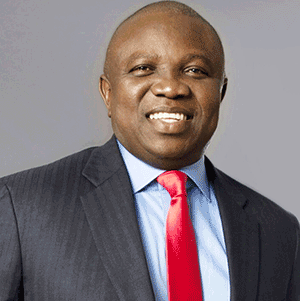By Bilkis Bakare
Lagos is unique in many ways. It is the sixth largest city in the world. With three lighter terminals and two ports, Lagos generates 50 per cent of Nigeria’s port revenue and the Murtala Mohammed International Airport (MMIA), Ikeja, Lagos, is the major hub for aviation within West Africa, and between the region and Europe.
Lagos State is indeed blessed by its position as Nigeria’s financial, commercial and industrial nerve centre with over 2,000 manufacturing industries and over 200 financial institutions. The state alone harbours about 60 per cent of the federation’s total industrial investments and foreign trade, while also attracting 65 per cent of Nigeria’s commercial activities. It accounts for more than 40 per cent of all labour emoluments paid in the country. Unarguably, Lagos occupies an important place in the socio-economic equation of Nigeria and indeed the Economic Community of West African States (ECOWAS).
Without a doubt, the uniqueness of Lagos accounts for her prosperity. It is, however, ironical that the uniqueness and prosperity of Lagos also have serious implications for the residents with regard to high cost of living in terms of housing, transportation, education among others. In Lagos, just like it is often the case in most major cities across the world, people daily contend with the reality of enormous cost of living. One particular group of people that really feel the brunt of the high cost of living in Lagos is the pensioners. If those that are gainfully employed struggle to make ends meet, one can really imagine what life would be for pensioners who reside in the state.
Pension is the benefit, usually money, paid regularly to retired employees or their survivors by private businesses and federal, state and local governments. It is meant to serve as a form of inducement and attraction for employment in the public service. Since 2010, Lagos pensioners have had issues with the prompt payment of their pensions. This had affected their ability to pay their bills, feed themselves as well as meet some other necessary obligations.
Things are, however, getting better for pensioners in the state, as the Governor Akinwunmi Ambode administration has demonstrated a strong resolve to put an end to their miseries. Not long after assuming office, Ambode ordered the release of N11 billion to pay off pension liabilities owed the mainstream retirees and the retirees in local government areas. The development is part of efforts put in place by the present administration to find a holistic solution to the issue of payment of pension entitlements to retirees under the pay-as-you-go (PAYG) pension scheme, which was discontinued in April 2007, as well as outstanding accrued pension rights due to retirees under the contributory pension scheme.
Additionally, the state government has also painstakingly developed plans to disburse pension funds to Ministries, Departments and Agencies (MDAs) as well as parastatals, including local government areas and the State Universal Basic Education Board (SUBEB).
Also, recently at a pre-retirement seminar for employees who are due to retire from the Lagos State Public Service between January and June 2016, the Commissioner for Establishment, Training and Pensions, Akintola Benson, disclosed that the present administration had paid over N41 billion to over 9,000 retirees in line with her commitment to pay all pension arrears. He reiterated the administration’s obligation towards considering the welfare of its staff paramount despite the limited resources. This has been attested to through the prompt payment of monthly salaries and allowances, even of all its active workers.
Consequently, most of the state pensioners see Ambode as a sort of messiah. At a recent parley organised by the Lagos State Ministry of Establishment, Training and Pensions, some of the pensioners paid glowing tributes to Ambode for ‘rescuing them from the valley of the shadow of death’. They commended him for accommodating the state’s pensioners in his plans despite the numerous other challenges that the state government has to contend with. The general consensus among the retirees at the event was that Ambode is passionate about the plight of pensioners in the state. Jokingly, one of them made allusion to the fact that Ambode is one of them and that they are sure that he would not allow them to suffer. He was apparently referring to the fact that Ambode is also a retired public servant in the state.
On a serious note, however, pensioners obviously have a huge place in the plans of the current administration in the state. It is the conviction of the state governor that one of the best means to ensure accountability, efficiency and productivity in the state’s public service is by taking proper care of the retirees. The underlining basis for this belief is that once those that are still actively engaged in the public service are aware that the system will take adequate care of them when they exit the service, they will definitely put in their best to move the state forward.
Undoubtedly, the arduous tasks that retirees undergo before collecting their hard-earned benefits usually send jitters down the spines of those still in active service. Invariably, the period of retirement, purportedly meant for resting and relaxation, becomes the time of stress and anguish for the retirees. Often, some of them lose their lives in unavoidable circumstances. By far, the most outrageous ill-treatment these old people get is the mismanagement of the pension fund. Recently, some officials in the federal civil service were arraigned for diverting the pension funds to personal use.
It is our firm conviction that this timely intervention by the administration of Governor Ambode will go a long way in ameliorating the sufferings of retirees in the state. It is expected that other states should take a cue from this gesture. If, indeed, the labour of our heroes past must not be in vain, governments across the land must take the issue of prompt payment of pensions to retirees as sacrosanct. This is why one is recommending the Lagos model as a feasible template for states in the country.
In as much as it is good to invest in infrastructure development, perhaps, the most essential investment a government can make is the one that has to do with building the people. Alexis de Tocqueville, in his classic, Democracy in America (1835), insists that building the people is more necessary than creating wealth, for the value of the latter is tied to the existence of the former.
As it is often said, great minds think alike. There is definitely no doubt that Governor Ambode was having Tocqueville in mind when he declared recently at a public function that “if this investment (in the people) matures, Lagos will be a better place because we believe clearly, without any doubt, that the greatest resource our state has is its people
• Bakare is of the Features Unit, Ministry of Information and Strategy, Alausa, Ikeja.













